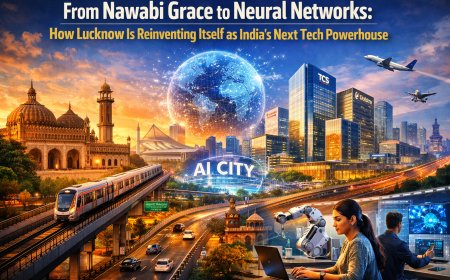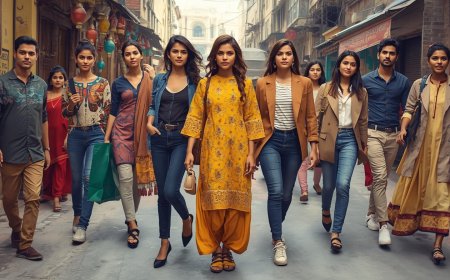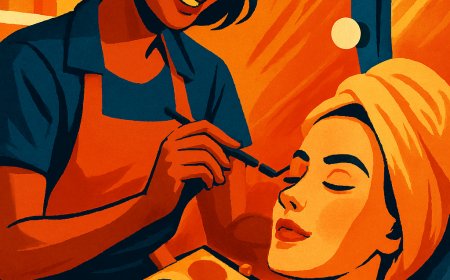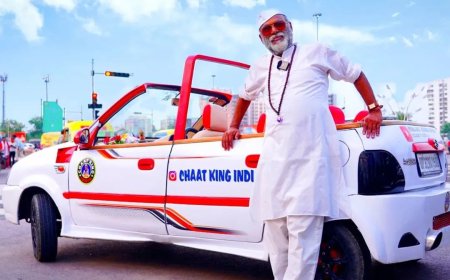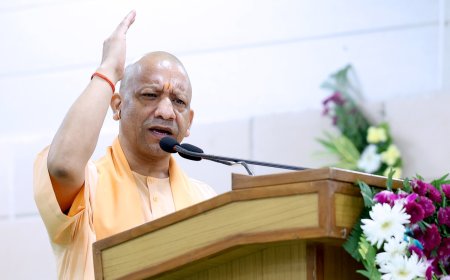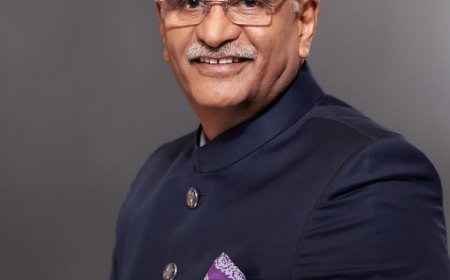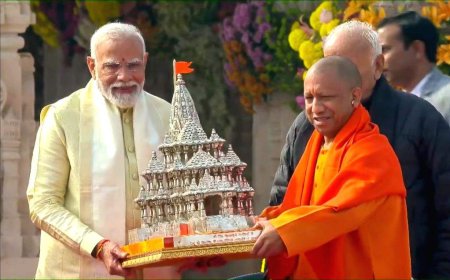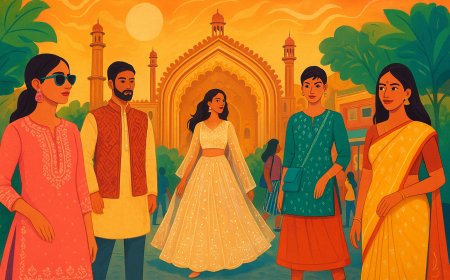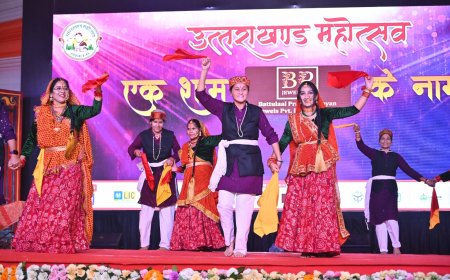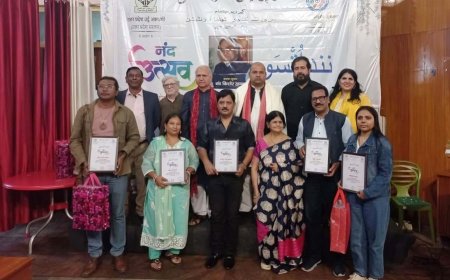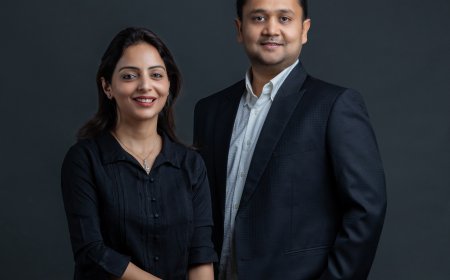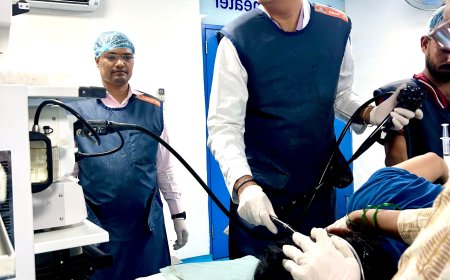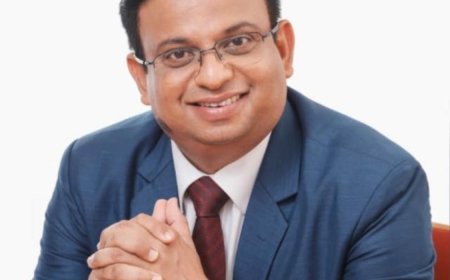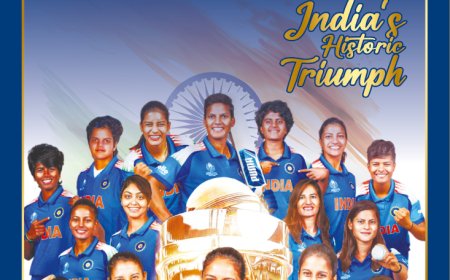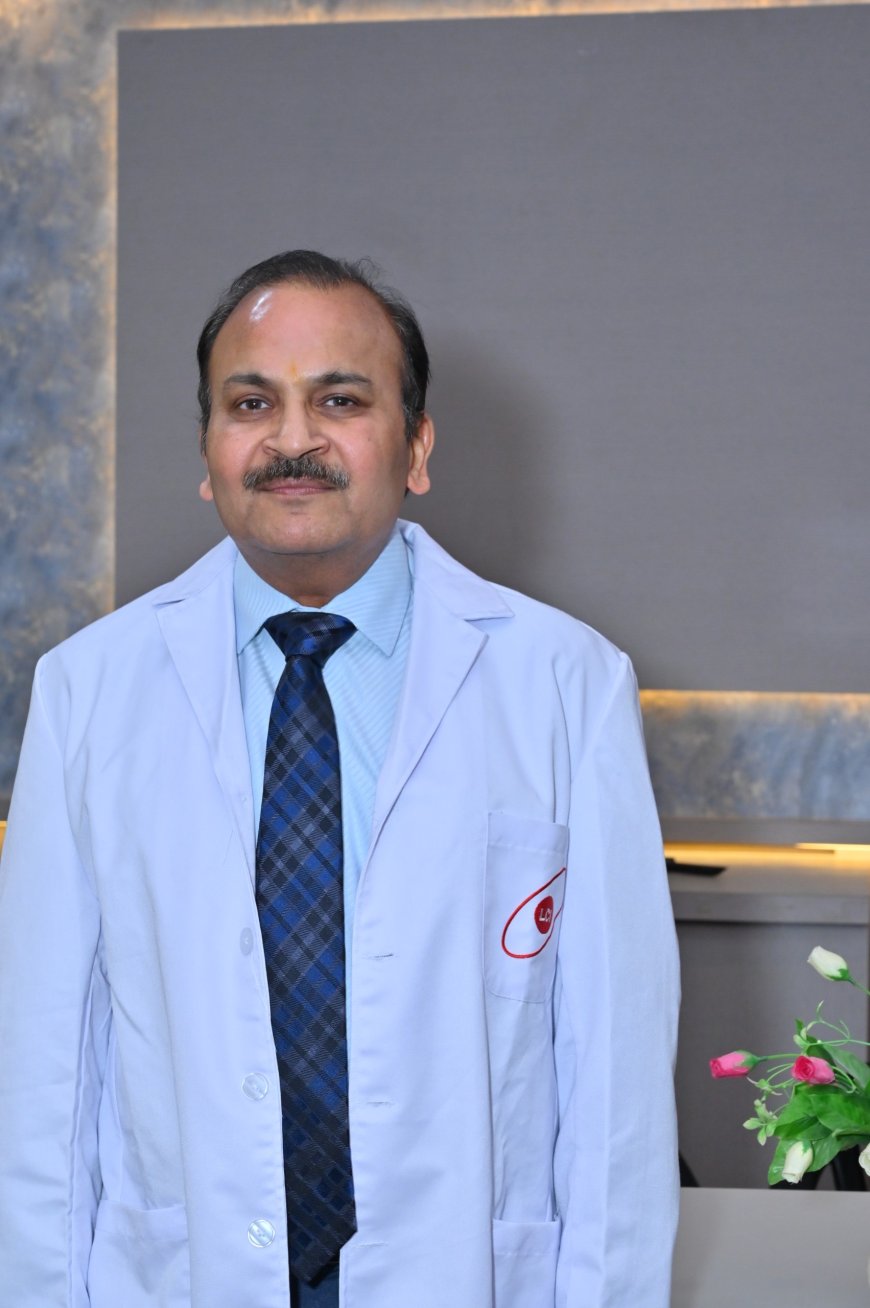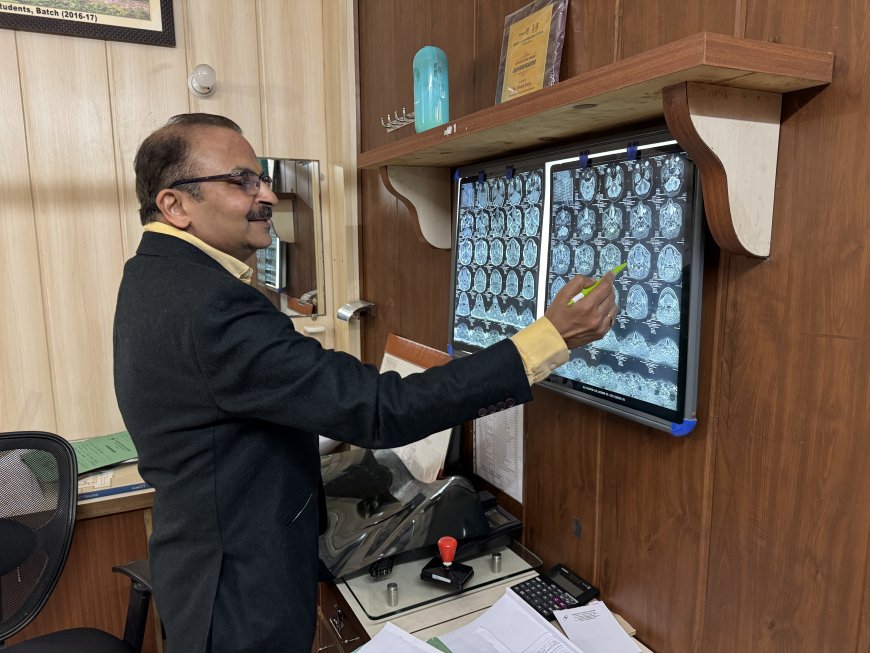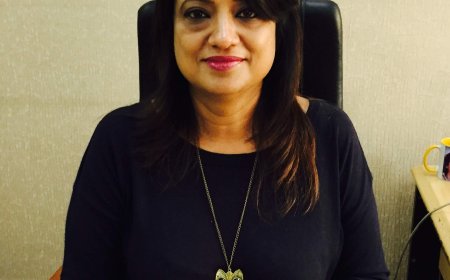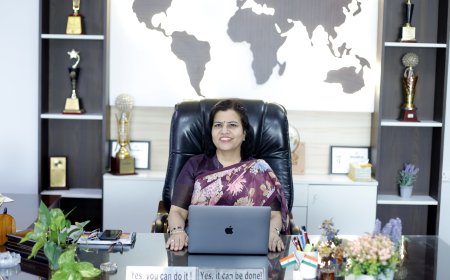Cancer Patients need mature Treatment - Dr. Vivek Garg
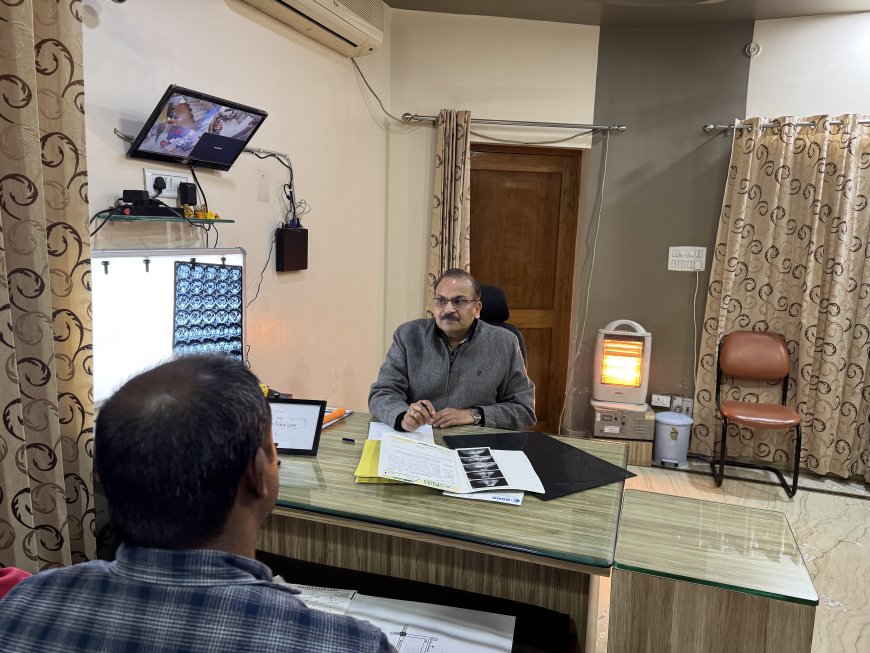
By Arijit Bose
An esteemed oncologist with 32 years of experience, is a pioneer in advanced cancer care and surgical oncology. An alumnus of Kanpur University, he serves at Lucknow Cancer Institute, specializing in lung , head, neck, breast and gynecological cancers. A member of prestigious organizations like IASO. Passionate about early detection and prevention care, he advocates cancer screening and integrates cutting-edge technologies in surgery. Dr. Garg's dedication and expertise make him as trusted name in oncology.
Where did your journey begin?
I saw my professors doing the extensive surgeries from head to toe which was very fascinating and I was inclined to carry forward the tradition for the large or big surgeries with reconstruction. As the fate planned it, my thesis was also on head and neck cancer. So my exposure for the cancer patients was very high and there the inclination started for oncology.
Then I went for a fellowship at Gujarat Cancer Institute, GCRI, Ahmedabad. It was a turning point in my life, coming from a small place like Kanpur with a regional cancer center and center of excellence for cancer treatment. There we were exposed to all types of cancer and doing surgery, at that time, all the equipments were available and the teachers and professors were very good. So slowly I got the nag of doing all these surgeries with various professors at Ahmedabad. Then I got my MCH, MCH Surgical Oncology at Chennai Cancer Institute, WIA. One of the oldest and the premier institute of the cancer. At Ahmedabad, I learned how to operate while at Cancer Institute, I learned the comprehensive cancer care.
That is inclusion of the radiation oncology, medical oncology, surgical oncology with the help of radiology and pathology. Then I came to Lucknow, my birthplace and started working in an individual capacity. Then this Lucknow Cancer Institute came into the horizon.
So I joined it and developed the surgical oncology department since 2000. This is it.
Q:So with nearly 32 years of experience, how have you seen the field of oncology evolve over the years?
What I saw and was doing in 92. Like initially in oral cancers, we were removing the jaw in all cases. For laryngeal cancers, we were removing the voice box and in breast cancer, we were removing the whole organ and so on and on. With the modern diagnostics, especially the CT scan, MRI and PET CT, the 3D planning for organ preservation in surgery can be done.
So we can save the larynx, we can conserve the breast and in bone cancers, we can do limb salvage. So surgery now is based on good workup with all diagnostic tools and good backup by anesthesia people and plastic surgeons. Laparoscopy has come in a big way and with the advent of robotics, the things have become more precise and surgery alone is not enough to give the cure.
So the radiation and medical oncology with nuclear medicine have improved the survival rates. In chemotherapy, in medical oncology, everyday new drug is coming and now we have target-oriented chemotherapies, monoclonal antibodies and immunotherapy. While in radiation, we started with cobalt, now there are various other methods which can deliver the dose precisely to the target area with minimal side effects like LINIAC , IGRT , IMRT, RAPID ARC, GAMMA KNIFE with the help of MRI, CT scan, and more recent addition is photon therapy.
Same has happened in reconstructive procedures. Now we are using more of free flaps, and bony reconstructions.
Q: As a member of the Indian Association of Surgical Oncology, what do you think are the current challenges of cancer treatment?
A: In India, there are multiple gaps in the treatment of cancer, which I feel..Lack of infrastructure in rural areas, lack of preventive efforts, proper cancer registries, lack of trials by Indian medical community. And one of the biggest thing is language barrier. This language barrier is in treatment as well as in medical education also. Because the load of the patients are very high, and that too in the tertiary cities, so we spend more time for clinical duties, and very less for the research work. And in India, there is always the late detection of the disease. So a very high mortality rate, compared to western world. There is always a stigma around the diagnosis in the rural areas. They don't want to tell. Our own trials are very necessary, because trials conducted away from India may not fit in Indian population.
Because of racial difference, genetic, environmental, epidemiological, infrastructural and socio-economical difference. I can give an example of an Indian trial, which has changed the treatment protocol of head and neck cancer. Which has come from the Tata Memorial Institute. The low dose chemotherapy, oral drugs with low dose immunotherapy has really changed our plan. So I think this is the difference, and these are the challenges which I face.
Q: Importance of cancer screening and how it plays a role in prevention?
Indian government has put November 7th as a cancer awareness day. So, what we have seen, like periodic examination of oral cavity. Who are at risk? That is chewing habits of tobacco and pan. Second screening of human papilloma virus for cervical cancer. And this screening can be done at remotest area with visual inspection (VI), with 4% acetic acid and can catch early cervical cancer.Third is screening of the breast. Can reduce the burden of the breast cancer. But the road block is very low participation in the cancer screening programs. And the most important thing is, there has to be in place an effective referral mechanism to the proper hospital. It is like this, we have diagnosed it, we are not able to send it. The patient does not come. We have screened it, we have spent money. Effective referral mechanism to the proper treatment center. So definitely the screening is important, but it has to be followed up.
With the government programs like PMJY, that is Ayushman, Deendayal Upadhyay Cards, CM Fund. The treatment cost and treatment of the cancer in the poor patients is now possible. Other good initiative by the government is price control of the drugs.
So the essential drug rates have come down like anything. Especially for cancer drugs, cardiac drugs in STENTS. And the Indian pharmacological co. have started using the biosimilars and generics which have reduced the drug cost.
Q:What are the most common Cancer types?
A: In my practice, nearly 50% of my patients are oral cancer patients. In this part of the world, the highest incidence is the oral cancers. And gallbladder cancer incidence is also very high in our state. I was in Chennai, in 3 years, I have seen 3 gallbladder cancer, here in lucknow I have seen 8 to 10 cases/week. And this is just because of the eating habits, very high intake of tobacco, or gallbladder cancer has been attributed with the dietary habits i.e. when we eat outside, pakoras, samosas, kachoris then the cooking medium is used many times which makes it harmful. Gangetic belt, from Allahabad, Banaras, then Bihar, and then Calcutta, there is high incidence of Gall Bladder Cancer here.
Q: Sir, how has your approach to breast cancer changed over the years?.
A: We live in the tier 2 cities, the incidence of the breast cancer is increasing, in the metro cities and tier 2 cities, as the women are now more focused in shaping the future of the family, herself and even the society with the country. They marry late, less or no child, and minimum days of breast feeding. The treatment for the breast cancer , the approach is for breast conservation and use of various reconstructive measures, to maintain the shape and womanhood of the patient.
Lot of chemo protocols with monoclonal antibodies and immunotherapy have helped in adding years in the survivals. Even genetic tesing can identify the exact treatment plan and help to know the risk in daughters.
Q: So, what are some key advancements in treatment of gynecological cancers that you have witnessed in your practice?
A: In ovarian and endometrial cancer, the surgical approach has gone to extensive surgeries i.e. removal of the peritoneum, lymph nodes with all other necessary structures followed by H I P E C (It is heated intraperitoneal chemotherapy). For Cancer Cervix Robotics and Laparoscopic surgery is the in thing. With nerve sparing surgeriesin all the organs just together treatment has become evidenced preserving the organ as well as the full function of patient with best oncological outcomes.
Q: How do you make a Cancer patient at ease?
A: In India the trend is not to tell the patient. Ensure a proper treatment plan, then discuss all pros and conswith cost benefit ration and side effects with patients and relatives. Create a positive atmosphere. Create a seamless financial support system. Have a cafeteria approach where the suitable alternatives are laid threadbare. Do a complete counselling. Don’t instil fear. Make the patient at ease. Discuss all aspects openly. Especially the cost benefit ratio. The side effects. The response rate. Above all be positive clarifying that all complications can be taken care of.
Q: Suggestions that patients should keep in mind ?
What's Your Reaction?








